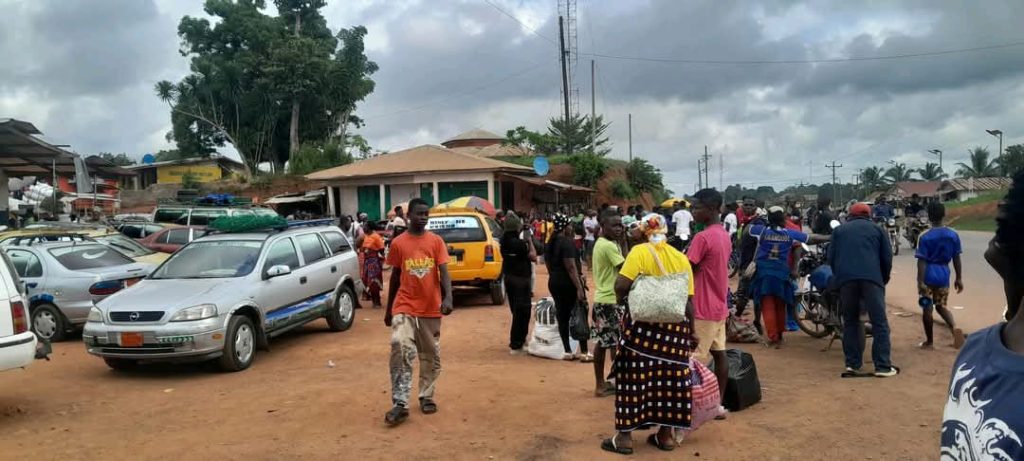On May 12, 2025, Liberia’s transportation network ground to a halt as commercial drivers launched a nationwide “go-slow” protest, crippling commutes and raising concerns about the potential impact on the nation’s economy. Spearheaded by the Federation of Road Transport Union of Liberia (FRTUL), the drivers expressed their mounting frustration with what they perceive as excessive ticketing and harassment by officers of the Liberia National Police (LNP). The protest, originating in Bong County, rapidly spread across the country, leaving commuters stranded and highlighting the critical role of commercial transport in Liberia’s daily life.
The drivers’ core grievance revolves around the perceived unfairness and frequency of traffic tickets issued by the LNP. Mr. Samuel Johnson, the County Chief Driver for the Federation in Bong County, articulated the drivers’ concerns, emphasizing that the issue extends beyond mere ticketing to encompass alleged daily intimidation and unjust targeting of their members. He portrayed the drivers as hardworking citizens contributing to the nation’s economic well-being, yet treated as criminals on the roadways. This sentiment resonates deeply within the FRTUL, which represents thousands of commercial drivers nationwide.
The FRTUL’s decision to initiate the go-slow action followed unsuccessful attempts to engage with authorities and address their grievances through dialogue. The impact of the protest was immediately felt across major Liberian towns, including Monrovia, Gbarnga, and Kakata, where commuters struggled to find transportation. The scarcity of taxis and buses disrupted daily routines, leaving workers and students stranded and highlighting the vulnerability of the public transport system. Concerned citizens, like Faith Kollie, a Gbarnga resident, expressed their anxiety and urged swift government intervention to resolve the impasse and restore normal transport services.
The Liberia National Police, despite the escalating situation and widespread disruption, remained initially silent, not issuing an official statement regarding the drivers’ allegations. However, internal discussions were reportedly underway within the LNP, suggesting an attempt to address the crisis. Transportation experts warned of the potential for significant ripple effects on market activities and essential services, particularly in rural areas where road access is already limited. The prolonged disruption of transportation could severely hamper the flow of goods and services, impacting livelihoods and potentially exacerbating existing economic challenges.
The go-slow action brought Liberia’s transportation sector to a standstill, underscoring the vital role played by commercial drivers in connecting communities and facilitating economic activity. The drivers’ protest exposed a deep-seated tension between the FRTUL and the LNP, raising questions about law enforcement practices and the treatment of commercial drivers. The lack of immediate response from authorities further fueled the drivers’ frustration and underscored the urgent need for open communication and effective conflict resolution mechanisms.
The nationwide protest served as a stark reminder of the importance of reliable and accessible public transportation in Liberia. The disruption caused by the go-slow action highlighted the vulnerability of commuters and the potential for economic disruption when transportation services are interrupted. The incident emphasized the need for ongoing dialogue between the government, law enforcement agencies, and transport unions to address concerns, ensure fair treatment, and maintain the smooth functioning of the nation’s transportation system. The future stability and economic prosperity of Liberia hinge on the ability of all stakeholders to engage in constructive dialogue and find common ground.














